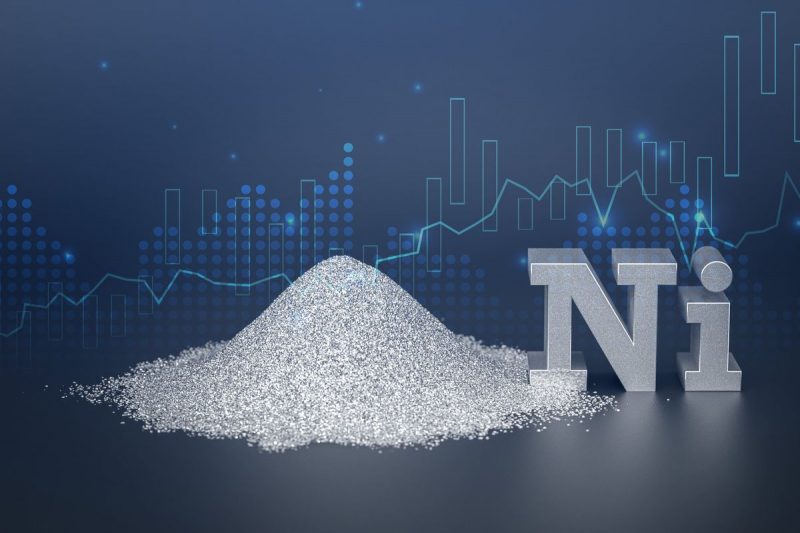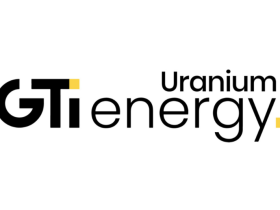The nickel price has trended down in 2023. After opening the year at US$30,000 per metric ton (MT), the base metal has fallen to rest just above US$22,000.
When asked what challenges junior miners in the nickel sector are facing, Wood Mackenzie Principal Analyst Adrian Gardner said major companies are looking to find resources for battery materials. “Junior miners/exploration companies need to hold their nerve and not accept the takeover/equity investment bid from the first offer that comes along,” he added.
1. Sama Resources (TSXV:SME)
Year-to-date gain: 38.46 percent; market cap: C$40.66 million; current share price: C$0.18
Sama Resources’ focus is on its Samapleu and Grata project in Côte d’Ivoire, West Africa. The asset, which is made up of two adjoining deposits, is host to nickel, copper, cobalt and platinum-group metals (PGMs) mineralization.
The company’s wholly owned subsidiary SRQ Resources has a portfolio of six properties composed of 525 exploration claims in Quebec, Canada, with its primary project being the Lac Brulé nickel-copper-PGMs project. Sama is currently in the process of spinning out SRQ, and Sama’s shareholders will receive shares of SRQ once it begins trading.
The company’s share price started climbing in February, moving from C$0.11 on February 6 to C$0.17 on February 24 following the release of drill results from Grata on February 7; according to Sama, they “confirm mineralisation on strike and down dip within the Grata prospect within the newly discovered ultramafic feeder.” One highlight interval from the drilling was 3.45 meters grading 0.63 percent nickel, 2.96 percent copper and 0.78 grams per MT (g/t) palladium within 193 meters grading 0.26 percent nickel, 0.21 percent copper and 0.37 g/t palladium.
While it fell back down, Sama’s share price began to climb again in late April, ultimately reaching its year-to-date high of C$0.19 on May 26, the day after the company announced the spinout of SRQ. Its most recent news on the subject came on July 21, when Sama received a final order approving the plan from the Quebec Superior Court of Justice. The company is still waiting on approval from the TSXV.
With regards to its project, at the end of June, Sama released an updated mineral resource estimate for the combined Samapleu and Grata deposits. The vast majority of the resource falls into the inferred category, which now totals 101.9 million MT at 0.25 percent nickel and 0.23 percent copper for 25,337 MT of nickel and 23,895 MT of copper. The report also details the cobalt, palladium and platinum resources at the project.
2. Power Nickel (TSXV:PNPN)
Year-to-date gain: 20.51 percent; market cap: C$27.03 million; current share price: C$0.235
Power Nickel’s goal is to meet the needs of the battery supply chain by setting itself up to supply high-grade nickel from its flagship Nisk project in Quebec, which it says is being developed into “one of the greenest sources of class-1 nickel in history.” The project, which is under option from Critical Elements Lithium (TSXV:CRE,OTCQX:CRECF), also holds copper, cobalt, palladium and platinum mineralization.
Power Nickel’s share price rocketed up early in the year on January 31, when the company partnered with Fleet Space Technologies, an Australian microsatellite operator and developer. According to a release, Fleet Space’s ExoSphere sound-mapping technology will generate data that can be used to create a full 3D image of the subsurface to a depth of 2 kilometers, giving Power Nickel a “clear, rich image of what resources may be below ground” with a turnaround of as short as four days. The company plans to use this data to increase its drilling accuracy and potentially find new deposits.
Power Nickel’s share price reached a year-to-date high of C$0.36 on February 21 after climbing through the previous weeks, although it cooled in March and April.
The company shared plenty of exploration news in Q2. On April 27, the company released the remaining assays from its 2022 drilling and the first assays from its winter 2023 program, noting that step-out holes at Nisk showed indications of a new mineralized zone. In mid-May, the company discovered a new high-grade copper-PGMs zone at Nisk, which it dubbed Wildcat; the news coincided with a Q2 share price peak of C$0.31.
In terms of nickel news, the end of May saw new drill results, including a highlight of 14.4 meters grading 1.01 percent nickel, including 7.8 meters grading 1.69 percent nickel. On June 15, Power Nickel stated alongside further results that the next steps for the project include deploying the aforementioned sound-mapping technology, readying the next stage of drilling and publishing Nisk’s inaugural mineral resource estimate.
More recently, on July 20, Power Nickel announced plans to spin out its non-core assets into the new entity Consolidated Gold and Copper to allow it to focus fully on Nisk. At the end of the month, Power Nickel exercised its option to acquire 50 percent of the Nisk project, and shared that it intends to acquire an additional 30 percent through its second option. It will be able to do so following the release of the mineral resource estimate.
3. FPX Nickel (TSXV:FPX)
Year-to-date gain: 15.91 percent; market cap: C$142.42 million; current share price: C$0.51
FPX Nickel is developing its flagship Decar Nickel District in BC. The property is host to four targets, including the Baptiste deposit and the Van target, the former of which is the company’s primary target. It also has 100 percent ownership of three other nickel projects in BC and one in Canada’s Yukon. While FPX is primarily a nickel company, it intends to produce cobalt as a by-product of future nickel mining at Baptiste.
On May 17, the company completed hydrometallurgical testwork on Baptiste’s awaruite nickel concentrate using a two stage process with a cobalt solvent and a nickel solvent, achieving extraction of greater than 99 percent for the nickel and cobalt.
“The results of our hydrometallurgical testwork program clearly demonstrate the technical advantages of awaruite nickel mineralization to produce battery-grade nickel sulphate, presenting an opportunity to develop a new vertically integrated nickel supply chain in Canada,” said Andrew Osterloh, FPX Nickel’s senior vice president of projects and operations.
FPX’s share price spiked on May 30 on news that global stainless steel company Outokumpu (HEL:OUT1V) was investing C$16.08 million in FPX through a private placement financing, resulting in the steel giant owning 9.9 percent of FPX. For as long as Outokumpu holds the shares, the deal gives it the right to negotiate one or more offtake agreements for nickel from Baptiste for up to a total of 60,000 MT, or 7,500 MT per year for eight years.
The company’s share price moved from C$0.43 on May 29 to C$0.58 by June 5 — a year-to-date high.
FPX’s most recent news came on June 27, when the company announced the completion of all testwork for its upcoming prefeasibility study, which it expects to release in September. According to the release, the updated concentrator flowsheet resulted in Davis tube nickel recovery of 88.7 percent, an increase of 4 percent over 2020 estimates from the preliminary economic assessment.
4. Horizonte Minerals (TSX:HZM)
Year-to-date gain: 12.45 percent; market cap: C$721.16 million; current share price: C$2.71
Horizonte Minerals is a nickel and cobalt company focused on developing its wholly owned Araguaia nickel project and Vermelho nickel-cobalt project, both of which are in Brazil’s Pará state. Vermelho, which is currently at the feasibility stage, is anticipated to produce 24,000 MT of nickel and 1,250 MT of cobalt annually.
In late January, Horizonte announced the submission of the environmental and social impact assessment for Vermelho to the Pará State Secretariat for Environment and Sustainability. The company said it is targeting the first half of 2024 for when the submissions will be approved by the entity. Horizonte’s share price jumped from C$2.18 to C$2.60 in the week following the news.
On July 6, the company received a mining approval permit from the Brazilian regulator for its Araguaia nickel project. This will allow the company to “mine, stockpile, and categorise ore, optimising the consistency of the feedstock.” It plans to carry out stockpiling over the next six months to establish enough ore to feed its plant for the six months following that process.
The news led to its share price jumping upward in July, ultimately reaching a year-to-date high of C$2.88 on July 17.
5. Nickel 28 Capital (TSXV:NKL)
Year-to-date gain: 8.18 percent; market cap: C$109.22 million; current share price: C$1.19
Nickel 28 Capital is a streaming and royalty company that has an 8.56 percent joint venture interest in the Ramu nickel-cobalt operation in Papua New Guinea and royalty agreements for 13 other projects. Nickel 28 is working toward the anticipated full repayment of its debt for the construction of Ramu in 2024, at which point it says it plans to use net cash flow for dividends and distributions.
In 2023, the company has been embroiled in a conflict with shareholder Pelham Investment Partners, which made a play to acquire a larger share of the company and influence its direction through a tender offer to minority shareholders. Pelham was ultimately tendered 3.66 million shares by the time the offer expired on April 26, making it the company’s single largest shareholder, and the fund subsequently called on Nickel 28’s board of directors for a change in course to “reestablish shareholder support.” The company’s share price jumped to C$1.25 the same day.
On May 3, Nickel 28 shared Q1 operational results for Ramu, which performed at 111 percent nameplate capacity, according to the release. Nickel 28 released further news on May 5, sharing that it had received a list of five director nominees from Pelham, including the fund’s CEO Ned Collery. Its share price rose throughout the week to peak at C$1.70.
Days later, Nickel 28 rejected a “with prejudice” settlement offer from Pelham, which included demands such as the resignation of three Nickel 28 directors and the appointment of Collery and two other nominees. In a letter to shareholders ahead of its annual general meeting on June 12, Nickel 28 emphasized that the fund members do not have the necessary expertise to control a mining company. Independent advisor Institutional Shareholder Services concurred with Nickel 28 in its findings, stating that “wholesale removal of the management slate could jeopardize the company’s strong shareholder returns delivered since inception.”
The Supreme Court of BC ruled that Pelham’s notice for director nominations was not far enough in advance of Nickel 28’s AGM to need to be considered at the meeting. However, Nickel 28’s existing board members all received less than majority support at the AGM with around 41.5 percent votes in favor of their reappointment; the remaining votes withheld, aligning with Pelham’s recommendation. As Nickel 28 has a majority voting policy, each member tendered their resignation for consideration as of June 16, at which time the company also announced it had appointed a new independent director, Ian Ross, who will advise on whether the resignations should be accepted.
Nickel 28’s share price has fallen in the time since then, although it is still up year-to-date. The company’s most recent news came on July 26 in the form of its Q2 operating results for Ramu. During the quarter, Ramu produced 7,784 MT of contained nickel and 717 MT of contained cobalt, a slight decrease from Q1.
FAQs for nickel investing
How to invest in nickel?
There are a variety of ways to invest in nickel, but stocks and exchange-traded products are the most common. Nickel-focused companies can be found globally on various exchanges, and through the use of a broker or a service such as an app, investors can purchase companies and products that match their investing outlook.
Before buying a nickel stock, potential investors should take time to research the companies they’re considering; they should also decide how many shares will be purchased, and what price they are willing to pay. With many options on the market, it’s critical to complete due diligence before making any investment decisions.
Nickel stocks like those mentioned above could be a good option for investors interested in the space. Experienced investors can also look at nickel futures.
What is nickel used for?
Nickel has a variety of applications. Its main use is an alloy material for products such as stainless steel, and it is also used for plating metals to reduce corrosion. It is used in coins as well, such as the 5 cent nickel in the US and Canada; the US nickel is made up of 25 percent nickel and 75 percent copper, while Canada’s nickel has nickel plating that makes up 2 percent of its composition.
Nickel’s up-and-coming use is in electric vehicles as a component of certain lithium-ion battery compositions, and it has gotten extra attention because of that purpose.
Where is nickel mined?
The world’s top nickel-producing countries are primarily in Asia: Indonesia, the Philippines and Russia make up the top three. Rounding out the top five are New Caledonia and Australia. Indonesia’s production stands far ahead of the rest of the pack, with 2022 output of 1.6 million MT compared to the Philippines’ 330,000 MT and Russia’s 220,000 MT.
Significant nickel miners include Norilsk Nickel (OTC Pink:NILSY,MCX:GMKN), Nickel Asia, BHP Group (NYSE:BHP,ASX:BHP,LSE:BHP) and Glencore (LSE:GLEN,OTC Pink:GLCNF).
Securities Disclosure: I, Lauren Kelly, hold no direct investment interest in any company mentioned in this article.





